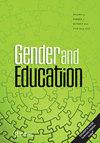University, neoliberalism and hegemonic bodies: narratives of international students in Chile
IF 1.9
3区 教育学
Q2 EDUCATION & EDUCATIONAL RESEARCH
引用次数: 1
Abstract
ABSTRACT This article investigates the production of neoliberal subjectivities in Latin American international students in Chilean universities. In last years, Chile have registered plenty political uprisings regarding its economic, social and gender inequalities. The premise is that Chile is a country where Neoliberalism is rooted not only in the form of political and economic guidelines, but as rationality. It proposes that these forms of thought-action reinforce typically male success stereotypes, dismissing bodies challenged of non-hegemonic paths. Narrative interviews with doctoral students in Chile are used to describe how the topic of academic excellence sustained by the Chilean neoliberal university market materializes differently in each body. Students report the interpellation of success discourses affecting their bodies and relating their nationhood, gender and sexualities experiences to feelings of diminishment, loneliness, discrimination, etc. I argue that the presence of neoliberal rationalities in the Chilean university favours the exercise of sexist practices, naturalized as market practices, and impose normative adjustments on the gender and sexuality performance of students.大学、新自由主义和霸权机构:智利留学生的故事
本文调查了智利大学拉丁美洲国际学生新自由主义主观主义的产生。在过去的几年里,智利发生了大量关于其经济、社会和性别不平等的政治起义。前提是,智利是一个新自由主义不仅植根于政治和经济指导方针的形式,而且植根于理性的国家。它提出,这些形式的思想行动强化了典型的男性成功刻板印象,否定了受到非霸权道路挑战的身体。对智利博士生的叙述性采访被用来描述智利新自由主义大学市场所支撑的学术卓越主题如何在每个机构中以不同的方式体现。学生们报告说,成功话语的质疑影响了他们的身体,并将他们的国家、性别和性经历与衰落、孤独、歧视等情绪联系起来,并对学生的性别和性表现进行规范性调整。
本文章由计算机程序翻译,如有差异,请以英文原文为准。
求助全文
约1分钟内获得全文
求助全文
来源期刊

Gender and Education
EDUCATION & EDUCATIONAL RESEARCH-
CiteScore
5.20
自引率
9.10%
发文量
31
期刊介绍:
Gender and Education grew out of feminist politics and a social justice agenda and is committed to developing multi-disciplinary and critical discussions of gender and education. The journal is particularly interested in the place of gender in relation to other key differences and seeks to further feminist knowledge, philosophies, theory, action and debate. The Editors are actively committed to making the journal an interactive platform that includes global perspectives on education, gender and culture. Submissions to the journal should examine and theorize the interrelated experiences of gendered subjects including women, girls, men, boys, and gender-diverse individuals. Papers should consider how gender shapes and is shaped by other social, cultural, discursive, affective and material dimensions of difference. Gender and Education expects articles to engage in feminist debate, to draw upon a range of theoretical frameworks and to go beyond simple descriptions. Education is interpreted in a broad sense to cover both formal and informal aspects, including pre-school, primary, and secondary education; families and youth cultures inside and outside schools; adult, community, further and higher education; vocational education and training; media education; and parental education.
 求助内容:
求助内容: 应助结果提醒方式:
应助结果提醒方式:


